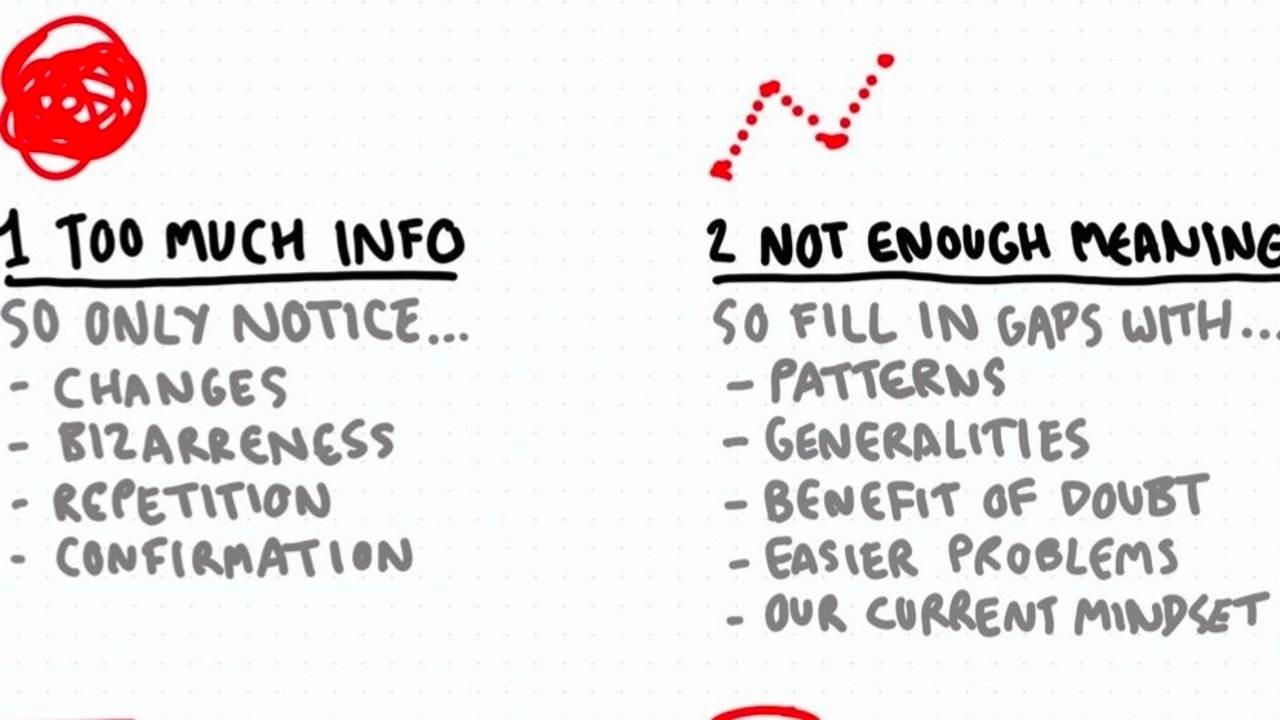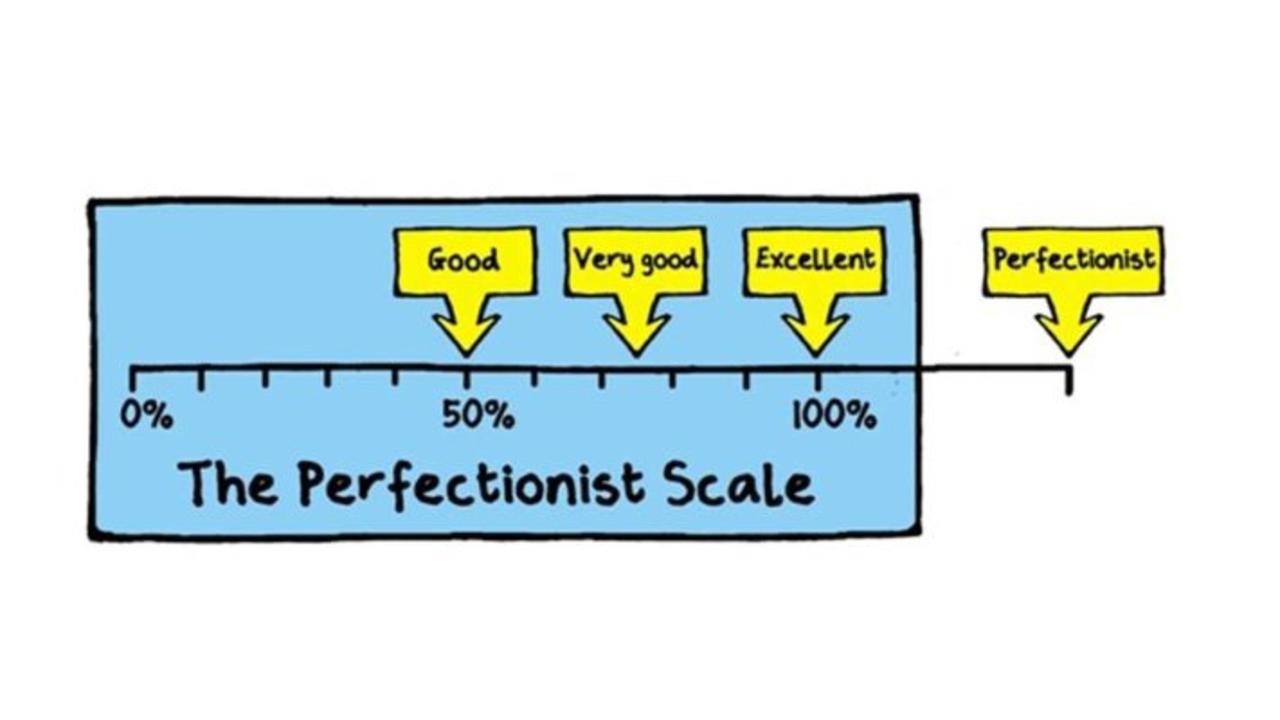
I am biased...you are biased...we are all biased...!
When accidents or incidents occur, there are normally biases at play - expectation, over-confidence, outcome bias...and the most prolific after the event, hindsight bias, to name just a few ...more
July 17, 2024•undefined

Are you a unhealthy perfectionist?
Perfectionism is a condition whereby the individual sets high personal standards. It can be healthy or unhealthy. Which one are you and what can you do about it? ...more
July 17, 2024•undefined

Can healthcare learn from the US Forest Service?
This short article highlights the ways in which the US Forest Service learns from both positive and negative events to make future firefighting operations safer, and identifies ways in which the healt... ...more
June 21, 2024•undefined
Are you a (person, entrepreneur, etc) who is ...... ?
Relate to the problems of your reader.
- Relate to problem 1. Ut singulos flores irrigent, etiam minimos. Et in cacumine montis acuminati. Ubi arbores robustae crescunt.
- Relate to problem 2. t singulos flores irrigent, etiam minimos. Et in cacumine montis acuminati. Ubi arbores robustae crescunt.
- Relate to problem 3. t singulos flores irrigent, etiam minimos. Et in cacumine montis acuminati. Ubi arbores robustae crescunt.
- Relate to problem 4. t singulos flores irrigent, etiam minimos. Et in cacumine montis acuminati. Ubi arbores robustae crescunt.
Then you've come to the right place.
Our world is complex. Full of intricacies, obstacles and challenges. But our world is also exciting. Full of potential, ideas and creativity. But what happens when the world fails us? When the systems we’ve created so meticulously leave us in the lurk? Do we look to the next person and lay a blanket of blame on them? Or do we simply walk away, because ‘this is just too difficult’ or ‘I don’t have time for this’?
And yet … What if we shifted from a mindset of blame to learning? What if we questioned the system, instead of the human? What if we saw the dots that were invisible before and a new picture emerged in front of our eyes that made everything look a little different?
And what if *gasp* we saw that this new way of seeing was what we needed all along?
To do better. To blame less. To move forward. To create and to grow.
Human in the System revealed!
That’s us. We are the ones who ask ‘what if’. We are the ones holding up the mirror. We are the challengers of the status quo.
We point out the dots that others have missed.
We unleash unexpected connections, possibilities and imagination.

OUR STORY
LEARN MORE ABOUT HUMAN IN THE SYSTEM
Human in the System has worked with companies and individuals far and wide.
High reliability organisations have trusted us to create an environment for discovery and learning, resulting in a thirst for continued growth.

OUR SOLUTIONS
UNLOCKING HUMAN POTENTIAL THROUGH HIGH VELOCITY EDUCATION™ PROGRAMMES
Find out how you can:
- Develop exceptional leadership and teamwork skills.
- Build trust, cohesion and fluid communication in your teams.
- Learn non-technical skills to manage risk.
- Create a culture of continuous learning for enduring results.

OUR IMPACT
BUILDING TEAMS FOR THE FUTURE OF WORK
You are the expert in your field, and we are merely there to set you on a course of self-creation and self-discovery. We guide you through the biases that stop you from seeing your ‘problems’, so you can discover the answers to your most pressing challenges.
Just image yourself after this course!
By the end of this course you will have:
What are the benefits of working with you?

Benefit 2
You could finally ibi fulgur rubrum colit. Et scindit in fragore tonitruo, maiora.

Benefit 3
You know. Et scindit in fragore tonitruo, maiora. Sursum, deorsum, in montibus et valle.
But most off all:
Tell your readers how they will experience your course and how their lives will look after they have finished your course.
Something to look forward to.

Jon D.
"Patrick's fitness programs are the real deal. His enthusiasm is contagious, and I'm in the best shape of my life!"
You can find more star icons here: https://fsymbols.com/signs/stars/
★★★★★

Jon D.
"Patrick's fitness programs are the real deal. His enthusiasm is contagious, and I'm in the best shape of my life!"
You can find more star icons here: https://fsymbols.com/signs/stars/
★★★★★

Jon D.
"Patrick's fitness programs are the real deal. His enthusiasm is contagious, and I'm in the best shape of my life!"
You can find more star icons here: https://fsymbols.com/signs/stars/
★★★★★
Name of your course
- Sursum, deorsum, in montibus et valle.
- Excepteur sint occaecat velit
- Tamen eligo, si eligam.
- Locum meum silvamque meam.
- Excepteur sint occaecat velit
- Tamen semper maneo, secundum desiderium meum, minimus!

TRANSFORMING TEAMS. UNLOCKING HUMAN POTENTIAL.
This is what is inside!
In this section you can describe all the items you cover in your course. Show your readers how much value is included!
Module 1: Name of your module
In viridi valle, in silenti valle.
- Ubi flores parvi crescunt. Ibi murmurat aqua alba.
- Et guttae resiliunt ubique. Ut singulos flores irrigent, etiam minimos.
- Ut singulos flores irrigent, etiam minimos. Et in cacumine montis acuminati.
- Ubi arbores robustae crescunt. Ibi flagellat ventus impetu acerbo et saevus. Ibi fulgur rubrum colit.
- Et scindit in fragore tonitruo, maiora. Et scindit in fragore tonitruo, maiora.
Sursum, deorsum, in montibus et valle.
Module 2: Name of your module
In viridi valle, in silenti valle.
- Ubi flores parvi crescunt. Ibi murmurat aqua alba.
- Et guttae resiliunt ubique. Ut singulos flores irrigent, etiam minimos.
- Ut singulos flores irrigent, etiam minimos. Et in cacumine montis acuminati.
- Ubi arbores robustae crescunt. Ibi flagellat ventus impetu acerbo et saevus. Ibi fulgur rubrum colit.
- Et scindit in fragore tonitruo, maiora. Et scindit in fragore tonitruo, maiora.
Sursum, deorsum, in montibus et valle.
Module 3: Name of your module
In viridi valle, in silenti valle.
- Ubi flores parvi crescunt. Ibi murmurat aqua alba.
- Et guttae resiliunt ubique. Ut singulos flores irrigent, etiam minimos.
- Ut singulos flores irrigent, etiam minimos. Et in cacumine montis acuminati.
- Ubi arbores robustae crescunt. Ibi flagellat ventus impetu acerbo et saevus. Ibi fulgur rubrum colit.
- Et scindit in fragore tonitruo, maiora. Et scindit in fragore tonitruo, maiora.
Sursum, deorsum, in montibus et valle.
Module 4: Name of your module
In viridi valle, in silenti valle.
- Ubi flores parvi crescunt. Ibi murmurat aqua alba.
- Et guttae resiliunt ubique. Ut singulos flores irrigent, etiam minimos.
- Ut singulos flores irrigent, etiam minimos. Et in cacumine montis acuminati.
- Ubi arbores robustae crescunt. Ibi flagellat ventus impetu acerbo et saevus. Ibi fulgur rubrum colit.
- Et scindit in fragore tonitruo, maiora. Et scindit in fragore tonitruo, maiora.
Sursum, deorsum, in montibus et valle.
Module 5: Name of your module
In viridi valle, in silenti valle.
- Ubi flores parvi crescunt. Ibi murmurat aqua alba.
- Et guttae resiliunt ubique. Ut singulos flores irrigent, etiam minimos.
- Ut singulos flores irrigent, etiam minimos. Et in cacumine montis acuminati.
- Ubi arbores robustae crescunt. Ibi flagellat ventus impetu acerbo et saevus. Ibi fulgur rubrum colit.
- Et scindit in fragore tonitruo, maiora. Et scindit in fragore tonitruo, maiora.
Sursum, deorsum, in montibus et valle.
Module 6: Name of your module
In viridi valle, in silenti valle.
- Ubi flores parvi crescunt. Ibi murmurat aqua alba.
- Et guttae resiliunt ubique. Ut singulos flores irrigent, etiam minimos.
- Ut singulos flores irrigent, etiam minimos. Et in cacumine montis acuminati.
- Ubi arbores robustae crescunt. Ibi flagellat ventus impetu acerbo et saevus. Ibi fulgur rubrum colit.
- Et scindit in fragore tonitruo, maiora. Et scindit in fragore tonitruo, maiora.
Sursum, deorsum, in montibus et valle.
Plus all these extra Bonusses!
Lorem ipsum dolor sit amet, metus at rhoncus dapibus, habitasse vitae cubilia odio sed.
- Mauris pellentesque eget lorem malesuada wisi nec, nullam mus.
- Mauris vel mauris. Orci fusce ipsum faucibus scelerisque.
- Tamen semper maneo, secundum desiderium meum, minimus!
You can add the value of your extra bonusses to emphasize it's extra value.


Name of your course
- Number of modules
- Result 1
- Result 2
- Result 3, 4 etc
- Plus bonusses
And remember.... Ubi arbores robustae crescunt. Ibi flagellat ventus impetu acerbo et saevus. Ibi fulgur rubrum colit.
Guarantee
Of course I understand you might wonder about the "what if".
Just remember you..... (repeat what your students will achieve if)
To help you overcome any doubt, I give you the guarantee that if you're not completely satisfied within .. days after you embarked on this course, you'll ......
Do you have any burning questions left?
Type down the frequently asked questions and answers in this grid.
Describe question 1
Anim pariatur cliche reprehenderit, enim eiusmod high life accusamus terry richardson ad squid. 3 wolf moon officia aute, non cupidatat skateboard dolor brunch. Food truck quinoa nesciunt laborum eiusmod. Brunch 3 wolf moon tempor, sunt aliqua put a bird on it squid single-origin coffee nulla assumenda shoreditch et. Nihil anim keffiyeh helvetica, craft beer labore wes anderson cred nesciunt sapiente ea proident. Ad vegan excepteur butcher vice lomo. Leggings occaecat craft beer farm-to-table, raw denim aesthetic synth nesciunt you probably haven't heard of them accusamus labore sustainable VHS.
Describe question 2
Anim pariatur cliche reprehenderit, enim eiusmod high life accusamus terry richardson ad squid. 3 wolf moon officia aute, non cupidatat skateboard dolor brunch. Food truck quinoa nesciunt laborum eiusmod. Brunch 3 wolf moon tempor, sunt aliqua put a bird on it squid single-origin coffee nulla assumenda shoreditch et. Nihil anim keffiyeh helvetica, craft beer labore wes anderson cred nesciunt sapiente ea proident. Ad vegan excepteur butcher vice lomo. Leggings occaecat craft beer farm-to-table, raw denim aesthetic synth nesciunt you probably haven't heard of them accusamus labore sustainable VHS.
Describe question 3
Anim pariatur cliche reprehenderit, enim eiusmod high life accusamus terry richardson ad squid. 3 wolf moon officia aute, non cupidatat skateboard dolor brunch. Food truck quinoa nesciunt laborum eiusmod. Brunch 3 wolf moon tempor, sunt aliqua put a bird on it squid single-origin coffee nulla assumenda shoreditch et. Nihil anim keffiyeh helvetica, craft beer labore wes anderson cred nesciunt sapiente ea proident. Ad vegan excepteur butcher vice lomo. Leggings occaecat craft beer farm-to-table, raw denim aesthetic synth nesciunt you probably haven't heard of them accusamus labore sustainable VHS.
Describe question 4
Anim pariatur cliche reprehenderit, enim eiusmod high life accusamus terry richardson ad squid. 3 wolf moon officia aute, non cupidatat skateboard dolor brunch. Food truck quinoa nesciunt laborum eiusmod. Brunch 3 wolf moon tempor, sunt aliqua put a bird on it squid single-origin coffee nulla assumenda shoreditch et. Nihil anim keffiyeh helvetica, craft beer labore wes anderson cred nesciunt sapiente ea proident. Ad vegan excepteur butcher vice lomo. Leggings occaecat craft beer farm-to-table, raw denim aesthetic synth nesciunt you probably haven't heard of them accusamus labore sustainable VHS.
Having doubts?
Repeat the problem of you readers. Let them know they are not the only one. Let them know they are not alone.You/ your course can help them.
You believe they have the right mindset. They can do this
Longer waiting will not solve the problem and there will never be a perfect time to start. Repeat your guarantee.
So why not start today?

Guiding you and your teams to peak performance through thought-provoking and experiential training, coaching, and mentorship.
m: +44 7966 483832 e: [email protected] a: Malmesbury | Wilts | SN16 9FX
© 2026 Human in the System
Contact
📞 +44 7966 483832
📧 [email protected]
📍Malmesbury | Wilts | SN16 9FX
